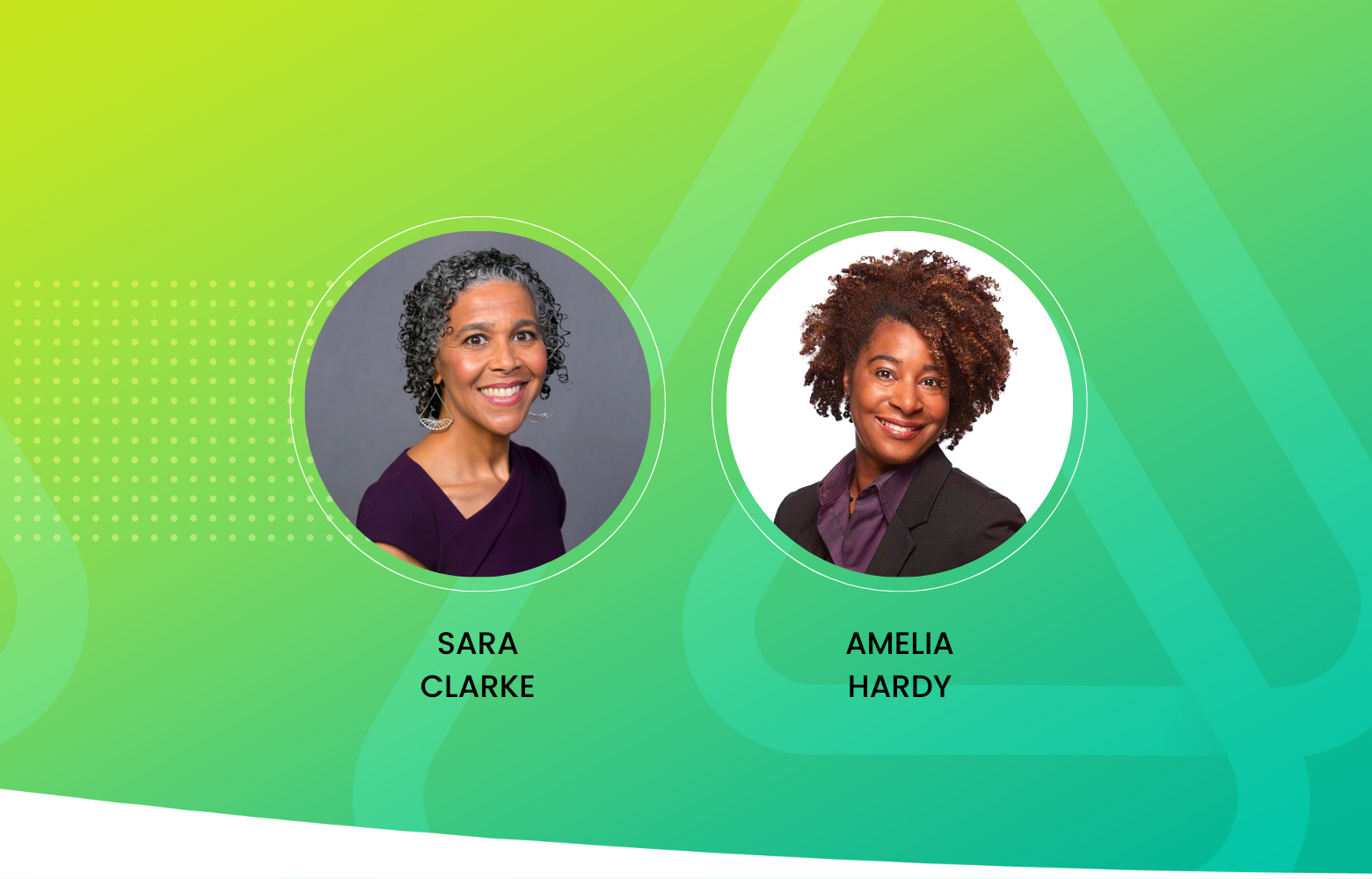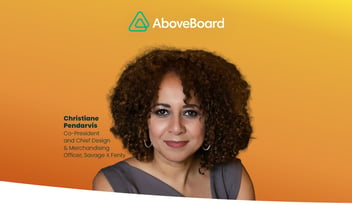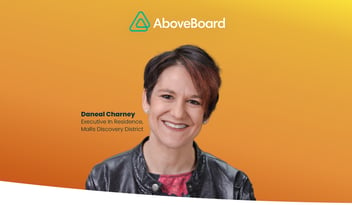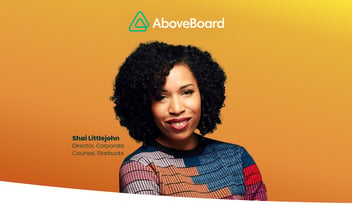As part of our Lessons in Leadership series, we had a virtual sit down with a number of AboveBoard members who are actively working towards enhancing diversity in leadership.
In one of those conversations—featuring Amelia Hardy, Vice President of Strategic Community Engagement at Best Buy and Sara Clarke, Co-President at the Harvard Business School African-American Alumni Association (HBSAAA)—we covered creating safe spaces and cultivating potential for the next generation of leaders.
Ahead, we dive into an excerpt of our conversation with Amelia and Sara, where we cover everything from the positive impacts of diversity to the barriers that Black and BIPOC executives face—and the best way to tear those barriers down..
What do you see as the positive impacts of diversity, equity, and inclusion in leadership? How do you articulate the true benefits of having diverse backgrounds and perspectives represented across leadership teams?
Amelia Hardy: I think it’s imperative for businesses nowadays to have a diverse leadership team, and diversity throughout the organization to make sure that we represent who we are as a nation, who we are as customers, and who we are as a community.
We know that the demographics of the United States are rapidly changing and that the customers that we serve are diversifying. We want to make sure that we have the perspectives of the customers we serve and of the employees that are working for us. We’re asking, who are we? Who do we want to be?
Sara Clarke: There’s also some magic there — if you can see it, you can be it. So in terms of cultivating a sense of inclusion and opportunity, seeing people who look like you—or frankly look different from you— in a particular leadership role enables you to picture yourself in that leadership role. That can be very energizing. And it also fosters an opportunity for mentorship and sponsorship. That experience is a lot richer if there is that true diverse representation at the most senior ranks.
As we think about diversity and people of color moving up the ranks, what do you think are some of the biggest barriers to entry that black executives face?
SC: I think one obvious barrier is one that AboveBoard is certainly actively addressing, and that is access and opportunity. Sometimes it's simply even knowing what roles are available and figuring out the path to get to them.
Frankly, we've heard some tone-deaf public statements by white leaders saying, "Oh, we couldn't find any qualified black candidates." And we just know that's not true. So part of [the solution] is just clearing that hurdle, overcoming those networks—either the formal ones in the executive search domain or the close-minded, closed relationship loops of, “Who do you know? And do those people happen to look just like you?”
"Another piece of it is sponsorship. Having someone who is in your corner, talking about you when you're not in the room is really powerful."
Another piece of it is sponsorship. So maybe you’re already in an organization, but how do you get up a notch or two? Having someone who is in your corner, talking about you when you’re not in the room is really powerful. Ensuring that there are advocates for you that recognize your talent or potential, even if they don’t look like you, and make space for you to have a seat at the table.
Sponsorship is really important. And that's something that people in positions of power and influence can already begin to do if they're not already.
AH: I totally agree with Sara. The sponsorships are key. If you don't have advocates to help you move throughout an organization, I think it can be hard [to get past those barriers]. We can't do it by ourselves.
"Organizations need to provide a psychologically safe space for Black and BIPOC executives to try things, maybe to make missteps and fail, but also to learn, and grow, and keep moving up the corporate ladder."
People—especially Black executives and BIPOC executives— need opportunities that allow them to achieve and show their full potential. If you are not in a good opportunity that aligns with your strengths, you might not show up as you are in your authentic self.
Another thing you alluded to, Sara, was this idea of psychological safety. I think the organizations need to provide a psychologically safe space for Black and BIPOC executives to try things, maybe to make missteps and fail, but also to learn, and grow, and keep moving up the corporate ladder. Then, it's not just the fear of, "If I make a mistake, then I'm out," but [a sense of], "Yes, everybody makes mistakes. Everyone is going to make missteps." That's what an entrepreneurial mindset is all about: Having the safe space to do that, move forward, and still be supported.
When it comes to mapping out their career path and really pursuing leadership roles, what advice do you have for Black executives and up-and-coming young Black professionals?
SC: One piece of advice would be to develop your credibility and experience as a leader outside of your formal career as well. Some of the most meaningful, informative leadership growth I've had was when I was simply focused on serving my community and being of service to others. There are ways that if you align your values with your skills, you can be of service and further enhance your leadership capacity off the clock.
"Some of the most meaningful, informative leadership growth I've had was when I was simply focused on serving my community."
Not only is that going to fulfill some greater meaning for you, but it's going to enhance your network with a diverse pool of people who may share some of your values. And those connections and contacts can also enrich your entire worldview and way of advancing your career aspirations. So if you have the time and inclination to be of service, that can actually build your leadership portfolio and your confidence.
Another practical piece of advice is just to literally take care of yourself. Be kind to yourself. Be patient. Be attentive to your mental and physical wellness. We go through a lot of things that can really take an emotional and physical toll over time. You can't be a superstar leader if you are taken down by extreme illness or other setbacks. So resilience, resourcefulness, and relationships are really core to your advancement.
AH: I would also say to take chances. Don't be afraid to pivot and go for different experiences. I sometimes say like when I got off the beaten path or took the road less traveled or made a pivot. It's not something that I would've expected from my career, but those are the moments and the positions, and the opportunities that probably provided the most growth and opportunity for me in the long run.
"There are going to be many times that you will be the only one in the room. So use your voice. That's why you're there."
Sometimes that's how your career works. It's not always a straight trajectory up. There can be turns and twists to get to where you want to go. In today's world, I think we're all going to have to be a little nimble, a little agile, a little flexible, and get it off that narrow path and that straight path, and do a little bit of a winding adventure at times.
And last but not least, I would say know your value. Lean into your voice. Be courageous. There are going to be many times that you will be the only one in the room, the only one with your perspective. So use your voice. That's why you're there. That's why getting a seat at the table is so important so that then your different lived perspective can be shared and can be learned from. That's the value that you bring.









